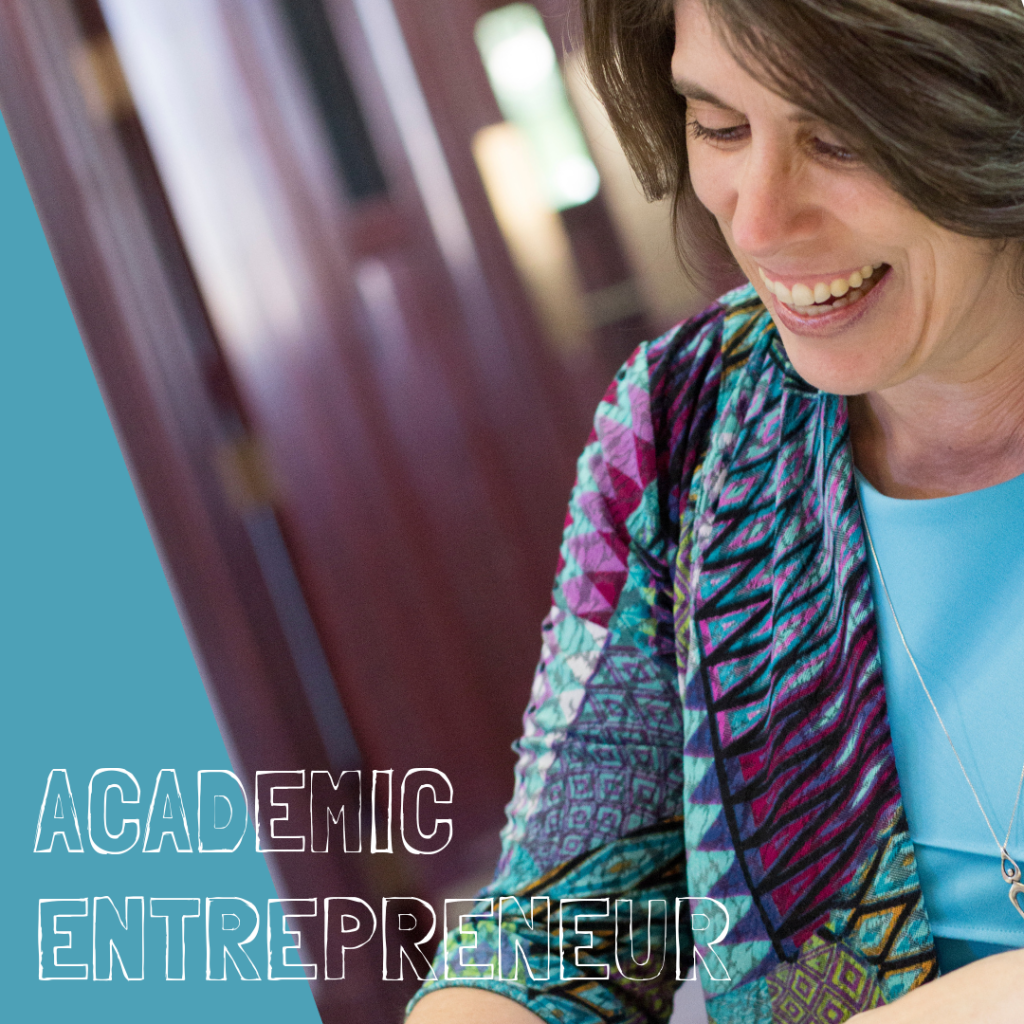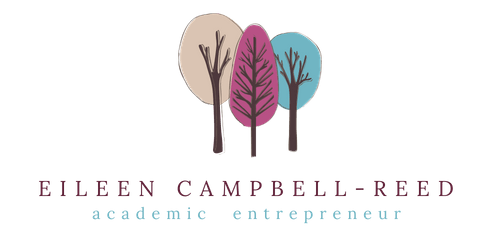Recently I traveled across the country with some of my newest students to attend a four-day orientation. Each morning, noon and evening we prayed with the brothers in the Benedictine Monastery. In the alternating hours we held our own sessions preparing the all-women’s cohort for their four-year MDiv program.
One of our sessions was devoted to a personality test.
I found myself both curious and a bit skeptical. Typical for me. I’m trained in psychology and theology, so “personality tests” make me smirk. However, I found myself surprisingly confirmed by the results.
First of all, the test said I am a “free spirit.” Although I am no fan of labels, I stayed open to the process. After free spirit my scores came in as “leader,” then “people person,” and finally a “task oriented.” All four scores were close. Together the top two suggest that I am a “free-spirited leader.”
What is an academic entrepreneur?
 Academic entrepreneur. That might sound a bit like a contradiction. Academic schools and people are often associated with serious research and learning, steeped in ancient traditions and habits of mind, as well as devoted to theoretical or philosophical concerns. On the other hand entrepreneur is associated with new ideas, practical or pragmatic choices, and innovation as a way forward.
Academic entrepreneur. That might sound a bit like a contradiction. Academic schools and people are often associated with serious research and learning, steeped in ancient traditions and habits of mind, as well as devoted to theoretical or philosophical concerns. On the other hand entrepreneur is associated with new ideas, practical or pragmatic choices, and innovation as a way forward.
My love for research, learning and understanding the complexities of life and faith keep me firmly in the academic realm. However, that very learning, propelled by a free spirit, leads me to new pathways and renewed opportunities for approaching age-old dilemmas and emerging problems.
Thus my call to be a free-spirited leader and academic entrepreneur makes my vocational identity increasingly clear. I am both a big-picture person and one who can look after details. I often draw people together collaboratively to get a job done. I’m also something of an idea factory. When I see the positive possibilities, I can work with individuals and groups and organizations to create, plan and calendar our way toward better outcomes.
Being an academic entrepreneur leads me to this kind of work:
- Consulting with seminaries, divinity schools, universities and researchers
- Coaching academic writers
- Mentoring seminarians and new ministers
- Researching professional practices (i.e. ministry, teaching and research itself)
- Writing for church leaders, people of faith, ministers and pastors, and academic colleagues
- Leading seminary courses (of course) and also meditation classes, spirituality retreats, preaching series, and pedagogy seminars
- Advocating, partnering and working as an ally with people that the dominant culture tries (both successfully and unsuccessfully) to marginalize.
From my own social location, I am working to deconstruct the multiple layers of white supremacy, gender complementarity, homophobia and other patriarchal structures that breed fear, thrive on anxiety, and do harm to human flourishing. Even as I continue this work-in-progress in my own life, I find joy in supporting, learning from and partnering with people with a wide variety of experiences and social locations different from my own. I am committed to this sacred work.
Thus far in ministry and theological education, I’ve lived this call by working and walking with ministers, seminary students, incarcerated adults, sexual abuse survivors, teens in the foster system, women and children in recovery programs, migrants and refugees, women struggling with professional and spiritual callings, social justice activists, folks who identify as LGBTQIA+, and white people who are searching for ways to be part of the change we need right now.
Here is my approach to working with individuals and organizations:
- listening and feedback in a supportive environment ;
- creating and sustaining spaces for learning;
- holding space for life’s big questions;
- helping people explore their purpose;
- bringing my best ideas, insights, processes, skills and experience to needs that cry out for positive, grace-filled, justice-oriented change.
When I left my full-time ministry work at a church in 1999, my friends worried I might not know what to do with myself outside the role of congregational ministry. In fact I was not bereft at all. Although I was lost for a few months as I transitioned to graduate school.
Leaving the church as a paid minister liberated me to see and hear my calling for it’s deeper reality. The role of minister did not define my calling. Rather it was the best and only path I could travel in order to be the kind of person I felt called to be…. a person who is with others in a gracious and authentic way, a person who struggles honestly with hard questions, a person who lives fully and generously with others where they are.
Five years of leading in a congregation helped me to hone those gifts and skills. Another eight years of doctoral study immersed me in the deep wells of psychology, culture, religion, and history. And ten more years of research, teaching and writing have brought me to this new season of life and work as an academic entrepreneur. Each formation has prepared me to be here, and each one is still working in me. Now I want to put that abundance into service and work alongside you. What shall we do?
Let me know how we might work together!
++++++++
Would you like me to travel to you and begin a collaboration or partnership that brings meaningful change to your life, your ministry, or your school? Read more here about how to work with me, and contact me today.
Revised September 17, 2018.



